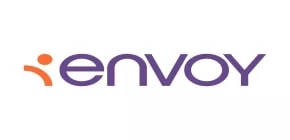On Jan. 21, 2022, U.S. Citizenship and Immigration Services (USCIS) issued new policy guidance that applies to certain O-1 Individuals with Extraordinary Ability or Achievement visas.
Overview
The new guidance, updated in the official USCIS Policy Manual, clarifies the evaluation of an O-1 beneficiary's prospective work within his or her area of proposed achievement or extraordinary ability. The guidance further clarifies how USCIS evaluates evidence to determine eligibility for O-1A nonimmigrants, particularly for individuals in science, technology, engineering, and math (STEM) fields. The new guidance includes a table discussing the types of evidence that will satisfy each of the criteria for establishing that the beneficiary meets the standards for the O-1A classification.
The USCIS guidance also indicates that if petitioners show that a particular existing requirement does not apply to their occupation, they can submit alternative evidence of comparable significance that establishes sustained acclaim and recognition. The guidance further includes examples of comparable evidence that can be submitted to support beneficiaries working in STEM occupations.
Finally, the USCIS update states that when officers are determining if individuals of extraordinary ability are coming to work in their “area of extraordinary ability,” officers will consider whether the individual's prospective work includes the expertise, knowledge or skillsets that are pertinent to the occupation(s) in which the individual works.
This new guidance does not change the legal standard for qualifying for the O-1A classification, but it does provide clearer guidance that O-1 petitioners can use for assessing the strength of potential O-1A cases and for assembling documentation to demonstrate the beneficiary's qualifications.
Looking Ahead
While this policy guidance is effective immediately, USCIS is accepting public comments for the new guidance, which can be submitted on the Policy Manual for Comment page.
Originally published 24 January, 2022
The content of this article is intended to provide a general guide to the subject matter. Specialist advice should be sought about your specific circumstances.

